
This flamboyant person with an attentive look is called "sadhu” (from
Sanskrit - "the man of virtue") Sadhus are ascetics in the Indian
culture. To be such a person must be a conscious choice. Sadhus
meaningly renounce all terrestrial, whether it is property, habitation,
money or even a family and children. These people are satisfied with the
least and live practically in full poverty, having only the most
necessary things - clothes, make-up accessories and a bag to store it
all. Some even do not need clothes and live naked. There were about 4-5
million sadhus in 2007 in India. There is also a great number of them in
Nepal.

The basic mission in life of a sadhu is "mocksha" or, in other words,
"nirvana" - liberation from the circle of births and deaths
("sansara"). A prominent aspect in life of many Hindus including the
sadhus is Yoga. In contradistinction from the European understanding of
Yoga, where the emphasis is put first of all on physical exercises, in
India Yoga is both a reasonable clarification and control over feelings,
and discipline.
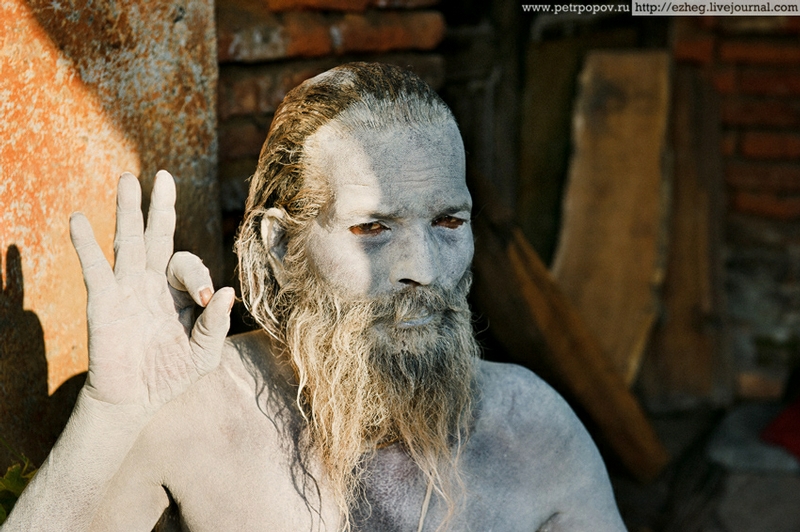
The make-up and the coloring put on body hold religious meaning.
Generally, the color of ochre symbolizes renunciation. This or that
make-up and color of clothes allow to define the religious direction to
which the ascetic belongs and also a deity which he worships.
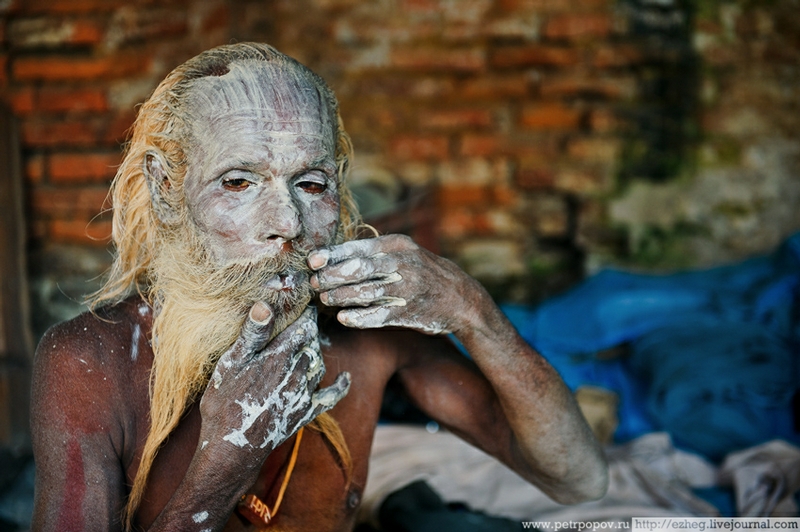
Sadhus paint not only their face and body but also a beard...
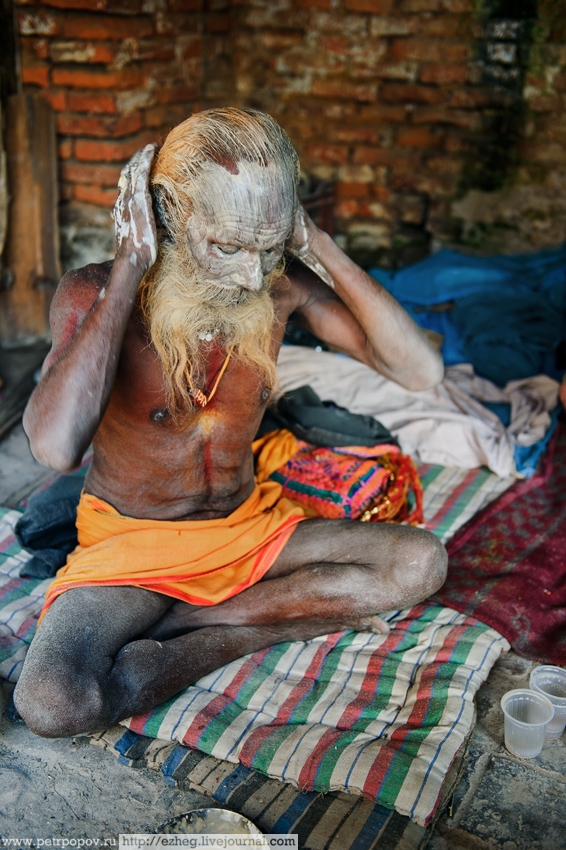
... and hair.
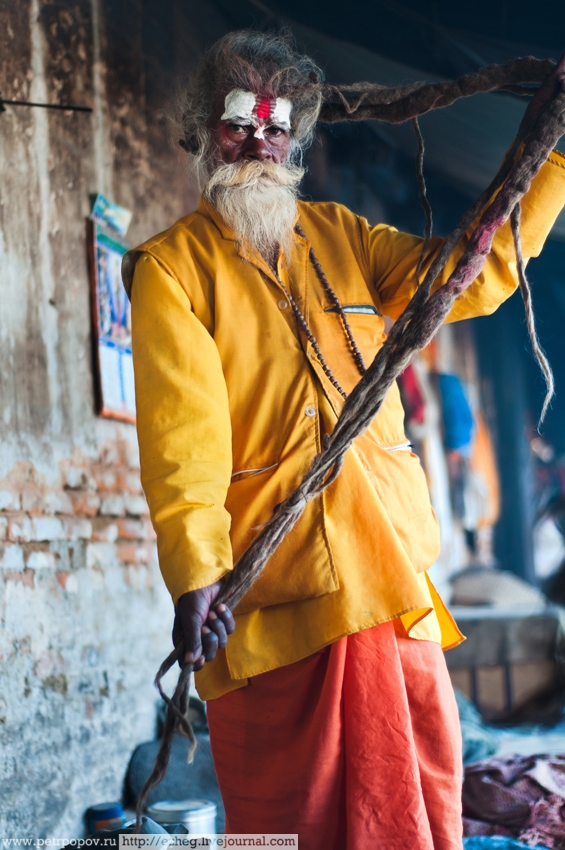
Each sadhu tries to prove the fidelity and sanctity in his own way.
Some make a silence vow. Some starve for a long time. Some go with a
hand lifted up and don't lower it for years. A great number of sadhus
grow hair from the cradle to the grave and go with huge, long
dreadlocks.
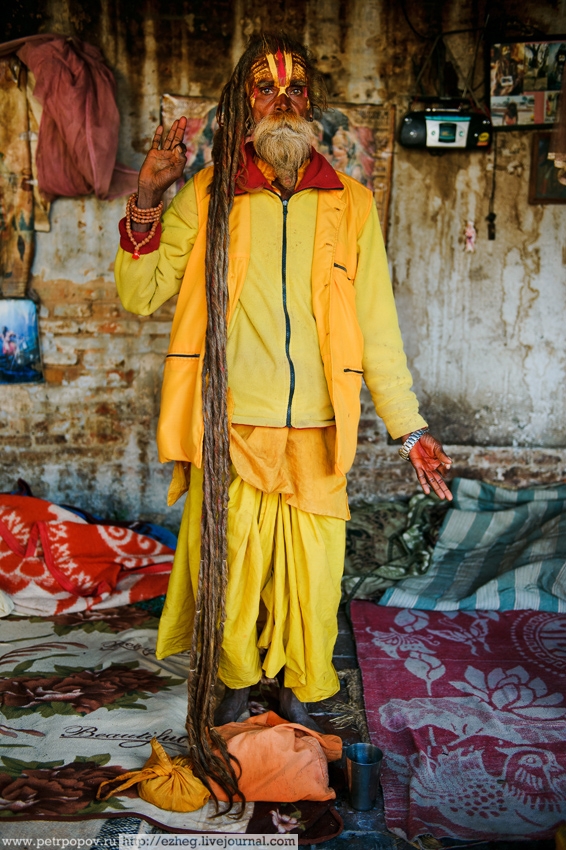
Sadhu's Social status is hard enough to understand for many of us. They
are considered to be dead both for themselves and for the society. But
as a whole people treat sadhu well, even sometimes respectful although
not without exceptions. The majority of people esteem them as teachers
but in big cities relation to sadhus can be miscellaneous.
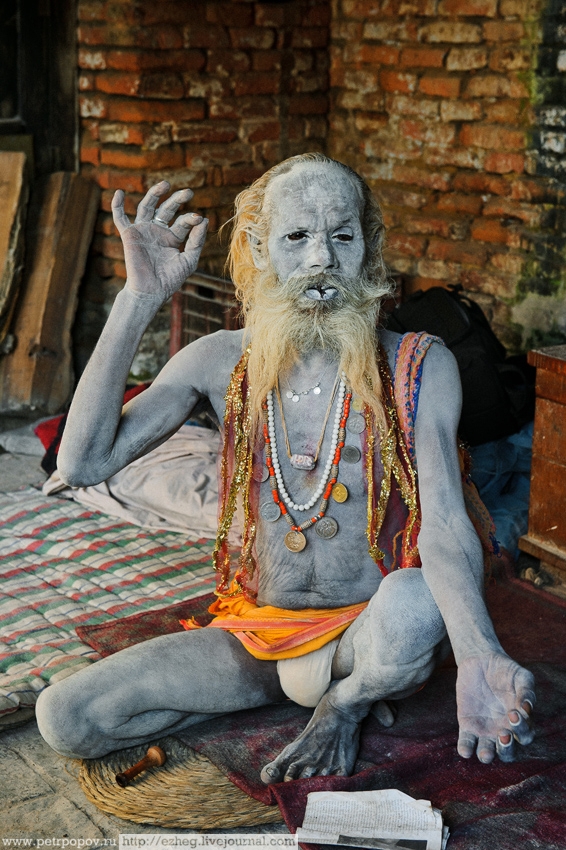
There is also a negative phenomenon - many of sadhus aren't true
ascetics, and simply pretend to be poor and sacred. For them it’s a good
way of begging for money from tourists notwithstanding it is offensive
for real sadhus.
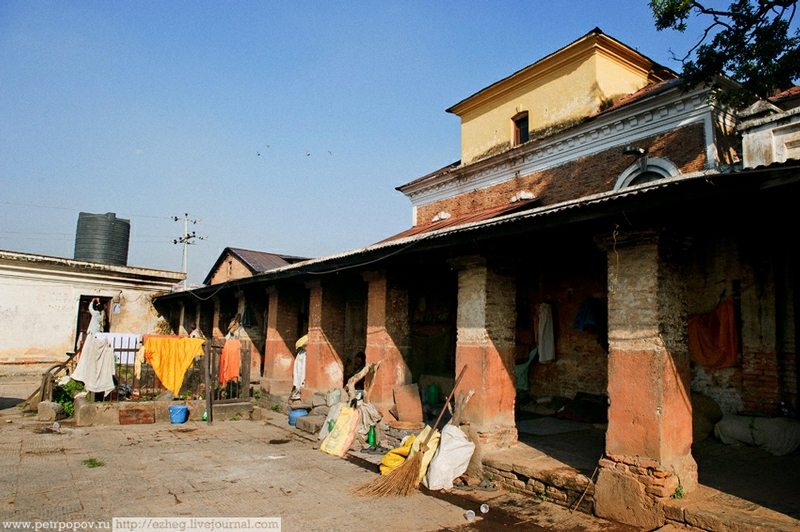
This colonnade is a dwelling of one of sadhu communities. It is not a
place for "parties" or concourses. The corridor of eight columns is
about two meters wide, it is a house for a group of ten men. Here they
live, sleep, eat, smoke, meditate, talk and pray.

Another interesting fact about Nepal. In Katmandu there is a pigeon
temple. In one half-closed court yard is a Hindu temple, round which
absolutely every inch is covered with pigeons. Birds are everywhere -
under foot, on special stone sculptures and wooden stands, on roofs and
benches...
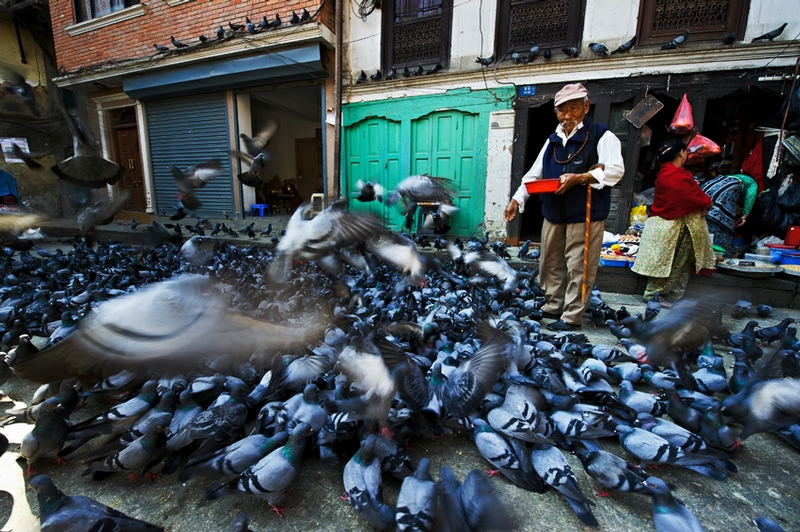
And here everyone can buy corn and feed the pigeons.
via ezheg

1 comments:
This was lovely to readd
Post a Comment